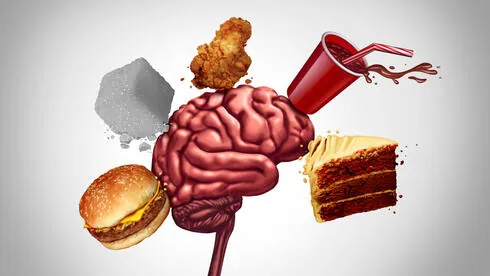
Breakthrough Israeli Study Reveals Surprising Link Between Blood Sugar Levels and Brain Aging
2024-11-03
Author: Daniel
A groundbreaking study spearheaded by researchers at Ben-Gurion University of the Negev has unveiled a significant connection between controlling blood sugar levels and the process of brain aging. This influential research, involving 300 participants, is among the largest and longest MRI trials addressing brain health to date, and it has recently been published in The American Journal of Clinical Nutrition.
As we age, our brains undergo natural degeneration, which includes neuron loss and a reduction in brain tissue volume—changes that can lead to cognitive decline and serious neurological issues. While the aging process is inevitable, the new findings indicate that dietary interventions can play a vital role in mitigating its effects.
Lead researcher and doctoral candidate Dafna Pachter, alongside Professor Iris Shai and an international team of experts, investigated the impact of an 18-month dietary program on brain health. "Our study indicates that around the age of 50, brain aging begins to accelerate," Shai noted. Until then, the cognitive decline remains relatively moderate, but after this age, the risk increases significantly.
Particularly, the research highlights the shrinking of the hippocampus, the brain’s memory center, as a sign of aging. Shai explained that this shrinkage contributes to the mixed-up moments familiar to many over 50, such as forgetting where they left their keys. Additionally, the study observed an increase in cerebrospinal fluid in the lateral ventricles, another physiological change that accompanies brain aging.
What sets this study apart is its focus on individual differences in brain age, which can vary significantly among peers of the same chronological age. "Brain age isn’t just about genetics; lifestyle choices are crucial," Shai emphasized. This discovery positions dietary decisions as key factors influencing brain health and cognitive longevity.
The investigation was conducted at the Negev Nuclear Research Center, where participants were divided into three groups based on varying dietary compositions. MRI scans were analyzed before and after the trial to assess changes in specific brain regions that are critical for cognitive function.
In a previous experiment, researchers found that adhering to a green Mediterranean diet, enriched with foods like Mankai (a type of duckweed) and green tea, resulted in a 50% reduction in brain atrophy. The latest findings further connect blood sugar management to protective effects on vital brain regions involved in cognition and motor control.
Shai's team highlighted that high blood sugar levels are especially detrimental to brain health, increasing the risk of dementia and long-term cognitive impairments. Advanced glycation end-products (AGEs), resulting from sugar binding to proteins and blood vessels, undermine the brain's vascular health and function.
Importantly, compounds in the Mediterranean diet—especially Mankai, nuts, and green tea—appear to lower blood sugar levels and improve the body's insulin sensitivity, safeguarding brain cells from oxidative damage. This antioxidant effect helps maintain brain health and function, emphasizing that effective dietary choices can significantly enhance quality of life at any age.
The implications of this research tantalizingly suggest that simple dietary adjustments could reduce the risk of cognitive decline associated with aging. While this study is pivotal, further research is required to unravel the deeper biological mechanisms at work.
Currently, Shai and her team are conducting a follow-up project, FIT (Follow Intervention Trials), which aims to track participants from previous studies to monitor their ongoing brain health. This next phase will assess whether their previous dietary interventions can predict their current cognitive status.
This study not only draws attention to the effects of diet on brain health but also paves the way for future nutritional guidelines aimed at preserving cognitive function as we age. As the stark reality of dementia looms over many elderly individuals, these findings offer a glimmer of hope for proactive measures toward brain health through mindful eating habits.


 Brasil (PT)
Brasil (PT)
 Canada (EN)
Canada (EN)
 Chile (ES)
Chile (ES)
 España (ES)
España (ES)
 France (FR)
France (FR)
 Hong Kong (EN)
Hong Kong (EN)
 Italia (IT)
Italia (IT)
 日本 (JA)
日本 (JA)
 Magyarország (HU)
Magyarország (HU)
 Norge (NO)
Norge (NO)
 Polska (PL)
Polska (PL)
 Schweiz (DE)
Schweiz (DE)
 Singapore (EN)
Singapore (EN)
 Sverige (SV)
Sverige (SV)
 Suomi (FI)
Suomi (FI)
 Türkiye (TR)
Türkiye (TR)